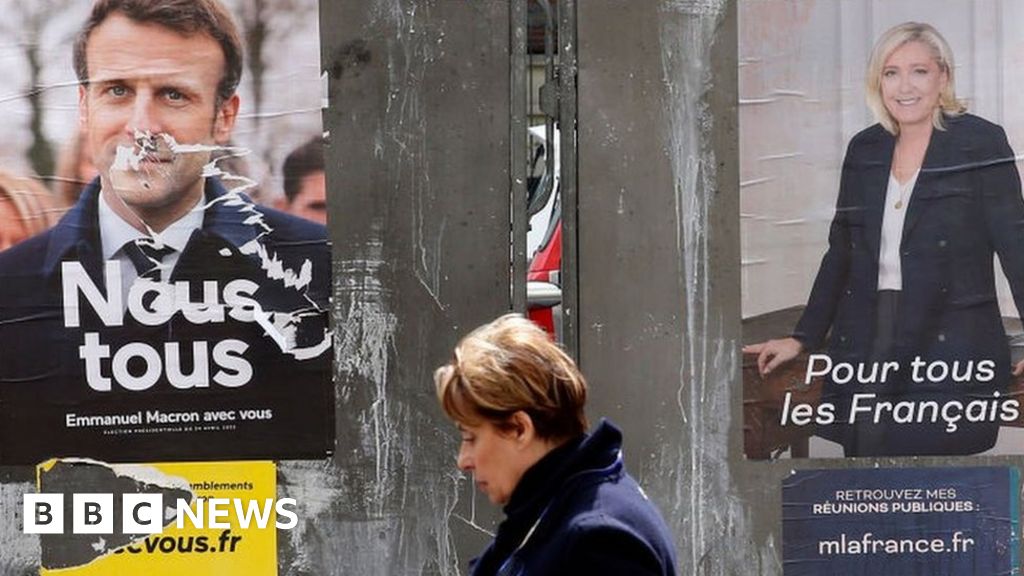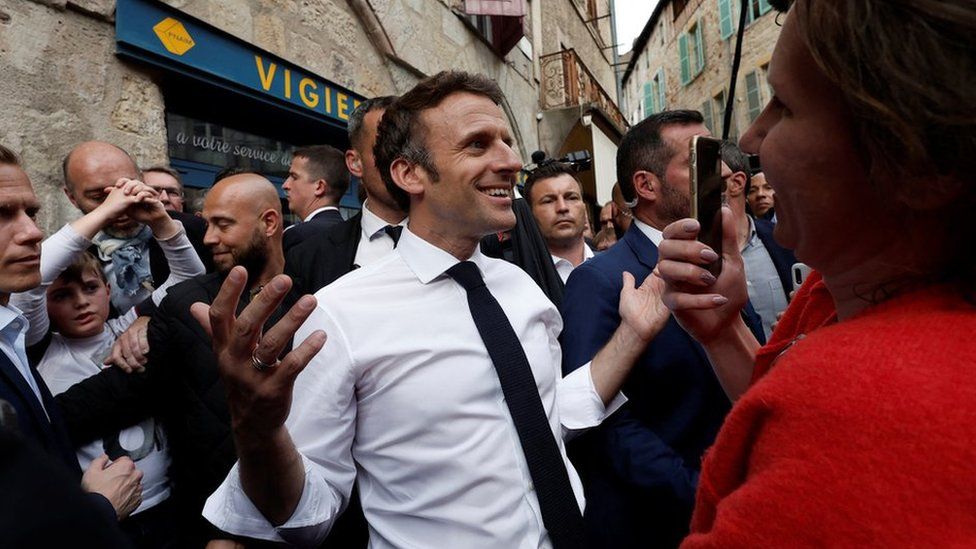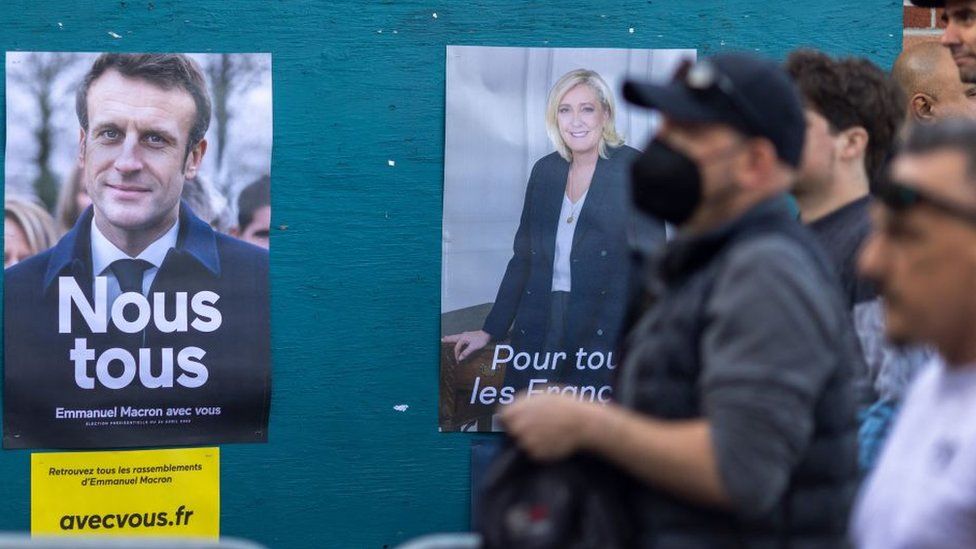
After a divisive election campaign, France decides on Sunday whether to give centrist Emmanuel Macron five more years or replace him with its first far-right president in Marine Le Pen.
She faces an uphill battle, with the polls giving her 44-year-old opponent a possible 10-point lead.
In order to win they both need to attract voters who backed other candidates in the first round.
But these are two polarising figures in France, and no votes are guaranteed.
Mr Macron’s detractors call him arrogant and a president of the rich, while the far-right leader has been accused of having close ties to Russia’s president.
Mr Macron came to power on a whirlwind promise of change but many complain they are yet to see it. His presidency has been buffeted by protests, the Covid pandemic and now rising prices.
Marine Le Pen, meanwhile, has learned from the mistakes she made when she was resoundingly beaten by the same opponent in the second round in 2017.
This is her third tilt at the presidency and if she fails it could be her last.
The great unknown in this election is how many voters will refuse to back either candidate, whether by casting a blank ballot or not turning out at all. Much of France is on holiday and turnout could be historically low.
The campaign has been short but the choice for voters is clear, between a pro-European sitting president and a nationalist candidate who seeks to ban the headscarf and restrict immigration.
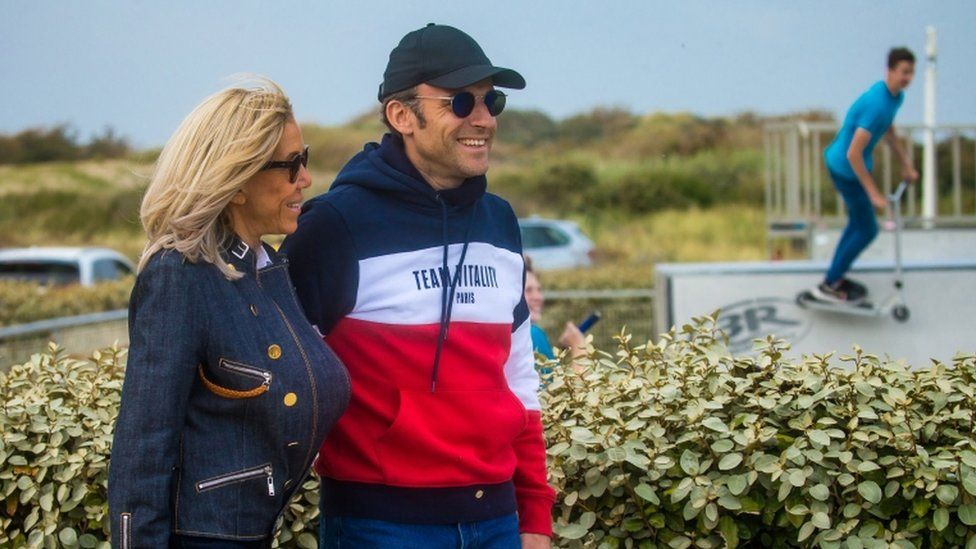
Polls open at 08:00 (06:00 GMT) with voting set to end some 12 hours later.
Whatever the result, Mr Macron will address voters on Sunday evening from a stage at the foot of the Eiffel Tower.
‘This place is dead after 7pm’
The rising cost of living – described in France as pouvoir d’achat or spending power – has become the number one issue for French voters and Marine Le Pen has promised voters an immediate onslaught on it if she wins.
She has fared particularly well in the smaller towns and rural areas that have struggled economically during the Macron era.
She came top two weeks ago in La Ferté-sous-Jouarre, a pretty town on the River Marne an hour east of Paris. Sitting outside a bar, Cécile says the pandemic hit the area particularly hard: “Before Covid there was a bar here called Avenue de Champagne, but that shut and now the place is dead after 7pm.”
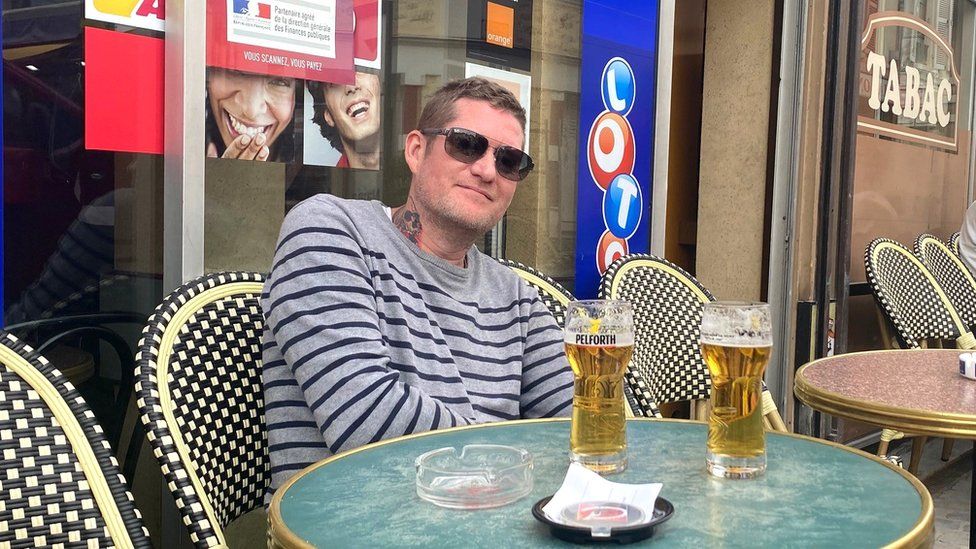
She will vote Le Pen as will Fred, who works on the Paris metro network: “People can’t afford to pay for gas and electricity. When I’m in Paris some things are too expensive and you have to eat.” African immigrants he knows in the capital also say they will vote for her, he adds.
There are plenty of shy Le Pen voters here too. France needs to change, they say, and they leave it at that.
She has carefully moderated her views, but still plans a referendum on strict immigration controls and her idea for a “Europe of nations” would tear the EU apart.
Jean-Claude, 66, may not agree with her hostility to the EU, but he complains too many people take advantage of France’s welfare system and take drugs.

This video can not be played
To play this video you need to enable JavaScript in your browser.
- MACRON V LE PEN: Two visions for France
- MACRON: From political outsider to president
- LE PEN: Long quest for power in France
- SIMPLE GUIDE: How the election works

Le Pen and Putin
Across France Emmanuel Macron is particularly popular with younger and older voters, and that is the case in La Ferté too.
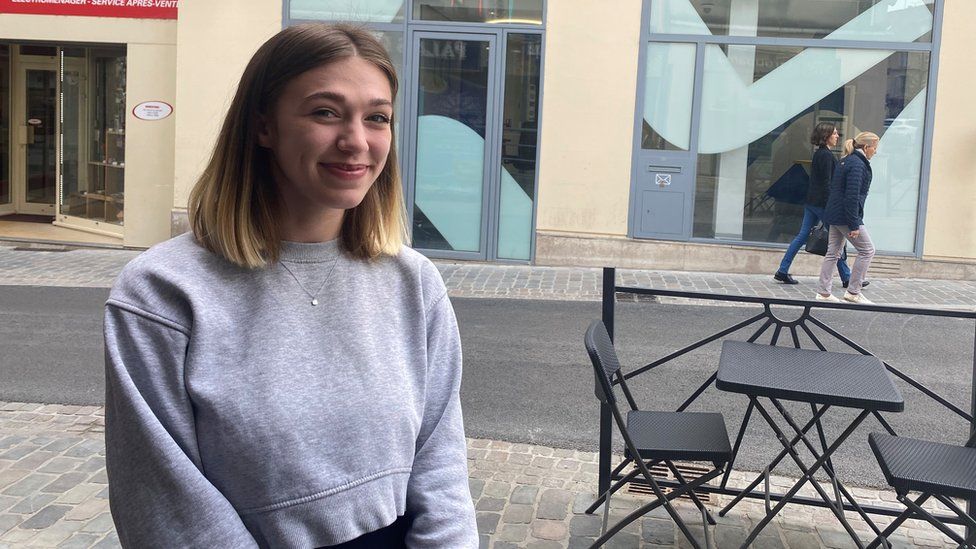
Apprentice accountant Séréna, 18, is worried about the war in Ukraine: “We don’t really know what Le Pen feels about Putin. Changing president would destabilise the situation now.”
Nicole, 76, runs a library in a nearby village and she has noticed many people turning to the far right. “I’m not so worried about her, more about the people behind her – her lieutenants.”
Ms Le Pen fares less well in the big cities, like Paris and Lyon, where her opponent led in the second round. But what could decide this election is who secures the support of almost 22% of the electorate who voted for far-left candidate Jean-Luc Mélenchon.
He was narrowly beaten by Marine Le Pen but won in cities including Marseille and Nantes.
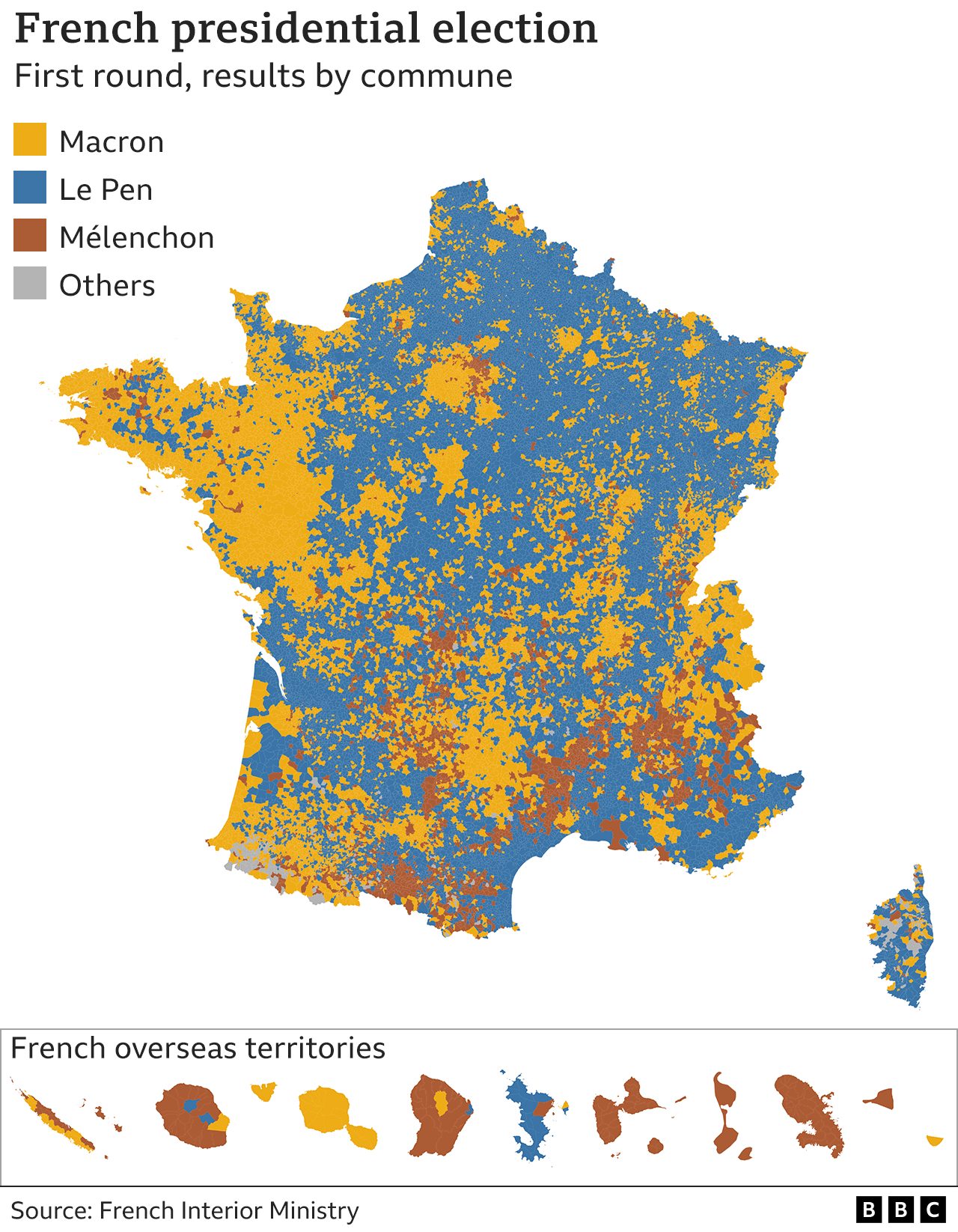

The town of Trappes, to the south-west of Paris, is a Mélenchon stronghold where Le Pen voters are in short supply.
Outside the local shops, a woman in a hijab condemns the far-right’s policies as racist. “I’m going to vote blank,” she says. It’s a popular idea that is seen as a protest vote that benefits neither candidate. On reflection she adds she might back Mr Macron, or even not vote at all.
Many Mélenchon voters here appear undecided. Outside a nursery school, Murad says he might vote blank too. “Macron is more for the rich than the poor,” he says, before adding that he could still vote for him.
Unemployment may be down and purchasing power may be higher than in 2017, but many voters on the left are disillusioned with the sitting president for cutting housing aid to millions of low earners and abolishing a wealth tax that targeted millionaires.
When Emmanuel Macron swept to power, it was on the promise of change. But a remark you hear everywhere is that nothing has changed at all.
If the opinion polls are accurate and he does win, he will not face an easy second term.
-
- 2 days ago

